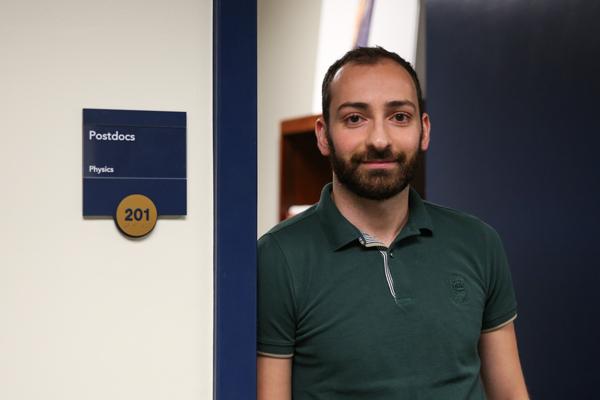Officials confirmed last week that they will go ahead with plans to raise 55 postdoctoral fellows’ salaries after a federal judge temporarily blocked the regulation that required the University to raise their pay.
A Texas judge filed a preliminary injunction Nov. 22 against the U.S. Department of Labor’s new mandated overtime pay rules, which would compel employers to pay staffers overtime if their salaries do not exceed $23,660 per year. Affected GW employees had already been informed of their new salaries, which officials said they would uphold.
The federal judge issued a temporary injunction against the regulation, which was estimated to affect four million workers. The new rules increased the overtime pay threshold to $47,476, which was originally scheduled to take effect on Dec. 1.
University spokeswoman Maralee Csellar said in an email that GW has already implemented and communicated the pay changes to affected employees.

“Our plan is to honor these commitments,” Csellar said.
Csellar declined to say how many employees or what departments are affected by the changes.
Fifty-five postdoctoral fellows at GW fell within that overtime pay threshold and received a letter from the University stating that their pay would be raised above the new maximum threshold for required overtime pay. The letter was sent out before the injunction, according to a faculty member who declined to provide a copy of the letter because the information contained is “between employer and employee.”
On Dec. 2, the University’s human resources department sent an email to faculty who supervise employees, including postdoctoral researchers, whose salaries are affected by the new standards.
The email confirmed that the University will honor the salary increases for employees whose pay was changed to exceed the overtime threshold and that any positions that were converted to hourly status will remain at that status.
“This means employees whose status converted to nonexempt are eligible for overtime pay and should continue to record the time worked by clocking in and clocking out,” according to the email.
Harald Griesshammer, an associate professor of physics and a member of the Faculty Senate, said postdoctoral researchers, who are highly skilled and often have Ph.D.s, should be paid a living wage.
“This is a question of human decency that people with that kind of training and that kind of experience have to make an adequate living in the city,” Griesshammer said.
Griesshammer said University leaders made a moral commitment to raise the postdoctoral fellows’ wages, and that it was important for them to keep that commitment. He said if leaders had decided to go back on that promise, it would have had “devastating” effects on postdoctoral fellows’ morale.
George Younes, the president of the GW Postdoc Association and a postdoctoral fellow, said he finds it hard to imagine that officials would have sent another letter revoking the previous promise of a pay increase.
But that national increase remains vulnerable: Younes said he is concerned U.S. President-elect Donald Trump’s administration will change the standards back to the old rules, even if a judge upholds the regulation. He said he hopes by the time the new administration could overturn the regulation, universities will see that the new rules are beneficial to postdoctoral fellows and professors and therefore worth keeping in place.
“The publication record is increasing for the University and the research is becoming more productive,” Younes said. “Hopefully they can keep it even if the new administration strikes it down.”
Younes said his salary won’t increase, but that many of his colleagues in the postdoctoral society will use the extra income to help dilute the costs of living in an expensive city like D.C.
“I cannot imagine how it is on postdoctoral fellows with kids, for instance,” Younes said in an email.
Geoffrey Rojas, the president of the Postdoctoral Association at the University of Minnesota, said his institution had decided, similarly to GW, to not go back on their promise to raise salaries for postdoctoral fellows. Rojas said reversing course would come across as insincere because the university had already released a statement saying the increased salary was out of respect to postdoctoral fellows’ work.
“They would have to come up with a justification that contradicted the previous justification they made,” Rojas said. “They’ve already tried to rationalize this as a voluntary decision as opposed to a federal obligation.”
Rojas said the move to keep the higher salaries was an attempt at “good internal PR.”
Anke Schennink, the president of the University of California, Davis’ postdoctoral union UAW Local 5810, said the injunction was a “great disappointment” but that it won’t impact the university’s postdoctoral fellows because the union negotiated a contract with the university before the injunction was filed.
Schennink said the union would have had less negotiating power with the university if they had negotiated after the injunction had been filed because their demands would have had less political support.
“It is always a mix of the power that you have from postdoctoral fellows, politicians, media, external factors, it’s all combined,” Schennink said. “Of course, this injunction is a great disappointment and probably would have affected how several people would have thought about it, absolutely.”







